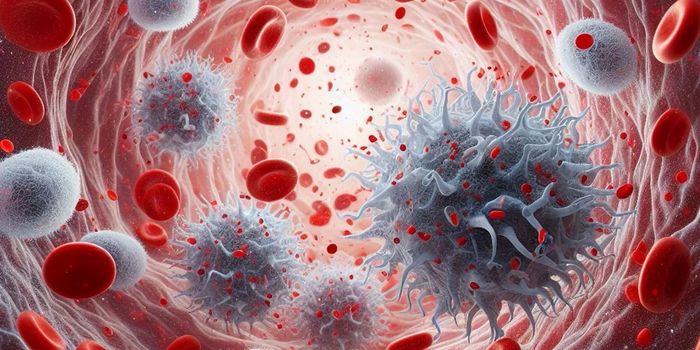Dual Threat: CAR T Cells Modified to Target Two Neuroblastoma Antigens
Neuroblastoma is a cancer of immature nerve cells found in various areas, including the adrenal glands, neck, chest, or spinal cord. Because these tumors occur in nerve tissue that has not fully developed, this cancer is most common in infants and young children, and about 800 cases are diagnosed annually in the United States.
A recent study published in Nature Cancer describes a novel immunotherapeutic strategy. The researchers enhanced immune cells so they could effectively seek out and eliminate neuroblastoma cells.
The novel therapy developed in this study used chimeric antigen receptor T (CAR T) cells. CAR T cells are a type of immunotherapy generated by harvesting a patient’s T cells, the immune cells responsible for attacking and killing tumor cells. The T cells are then modified to recognize specific targets, called antigens, found on the surface of cancer cells. The improved T cells are then reinfused into the patient, where they search for and attack the cancer cells expressing the antigen.
The CAR T cells used in the study were engineered to target two antigens found on neuroblastoma: GD2 and B7-H3. In addition, the modified cells also provided stimulation of CD28 and 4-1BB, two vital molecules required for effective anti-tumor immunity. CD28 is a molecule expressed on T cells and required for T cell activation. Stimulation of 4-1BB promotes T cell survival and memory functions.
The researchers implanted mice with human neuroblastoma tissue to test the efficacy of their dual targeting CAR T cells. They found that the CAR T cells eliminated the tumor cells, and the mice treated with these cells achieved long-term survival. In addition, when the treated mice were rechallenged by implantation of more tumor cells, no tumors grew.
The study results indicate that CAR T cells developed to target two neuroblastoma antigens can identify and kill tumor cells and generate durable memory cells. These findings suggest that these CAR T cells could be effective in preventing cancer recurrence.
Sources: Neuroblastoma, diagnosed, Nature Cancer, Immunotherapeutic, CAR T, antigens









